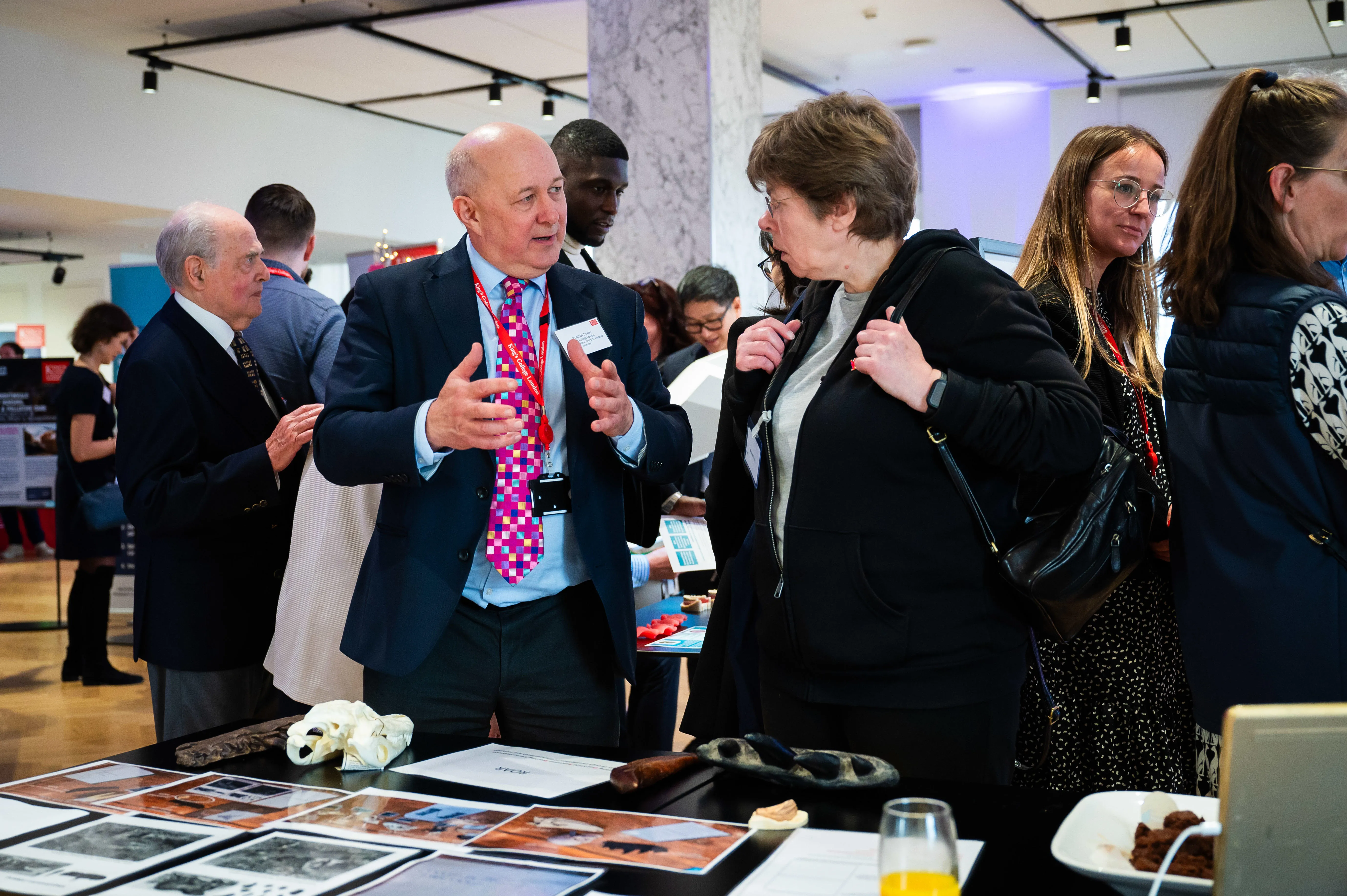06 June 2024
Showcasing FoDOCS Impact
This year's King's Impact Reception showcased some of the faculty's most impactful and pioneering work.

Almost 200 guests enjoyed exploring robots, light levitation demonstrations, virtual reality experiences, dinosaur teeth models and more. Featuring a number of exhibits from the Faculty of Dentistry, Oral & Craniofacial Sciences, guests heard more about the impactful work going on at the faculty.
Now an annual fixture in the King’s calendar, the Impact Reception seeks to celebrate and inspire our supporter and alumni communities, as well as bringing together our academics and professional services colleagues to experience the breadth and depth of our work.
Guests tried the haptics simulation machines, which students can train with and practice dental procedures before they perform them on real patients. Dr Jonathan San Diego presented the faculty's education research on the transfer of learning from different clinical simulation technologies to applying psychometric and clinical skills with patients. Simulation is a cornerstone of dental undergraduate and postgraduate training at King's College London. Through the provision of high-fidelity virtual haptic machines and low-fidelity phantom-head simulators, the Faculty of Dentistry, Oral & Craniofacial Sciences is now the first dental school in the world to have successfully integrated a seamless clinical digital learning environment across all our facilities.
Eda Dzinovic and Dr Sherif Elsharkawy presented their work on 3D printed dentures with miniature octopi suction cups. They showed a prototype of a denture they previously designed and printed.
With this project they aim to improve the retention of traditional acrylic dentures by developing novel bioinspired adhesive surfaces. Many animals have specific topographies on their feet which help them grip different types of substrates. One of them is Octopus vulgaris. Inspired by successful application of octopi suction cups in other fields (biomedicine and robotics), they decided to try implementing them in dentistry. Ultimately, they want to answer whether the presence of octopi suction cups enhance the retention and provide a solution for the development of next generation of complete dentures.
At the FoDOCS ROAR stand, the team led by Dr Jonathan Turner exhibited fossil replicas of a Tyrannosaurus rex jaw and tooth, a Megalosaurus jaw and an alligator skull. In addition, they had on display the workbooks used during their school visits and an example of a student's completed evaluation form. They demonstrated to the attendees how the ROAR initiative enables them to reach out to year 6 and year 8 pupils and potentially enthuse them about studying STEM subjects at university. The stand appeared to be well received by attendees, with many interesting discussions ensuing.
Dr Lindsey Edwards created the Poomoji art installation for the King’s Impact Reception, to introduce the concept of faecal microbiota transfer and open discussions on the acceptability of this treatment with both patients and the public attending the event. Dr Edwards has been leading some groundbreaking research into how restoring the microbiome via FMT has many health benefits such as boosting host immunity and intestinal barrier function reducing pathogenic bacteria and their antibiotic-resistance genes. Reducing the incidence of infection and potentially lowering the dependency for antibiotic prescriptions.




